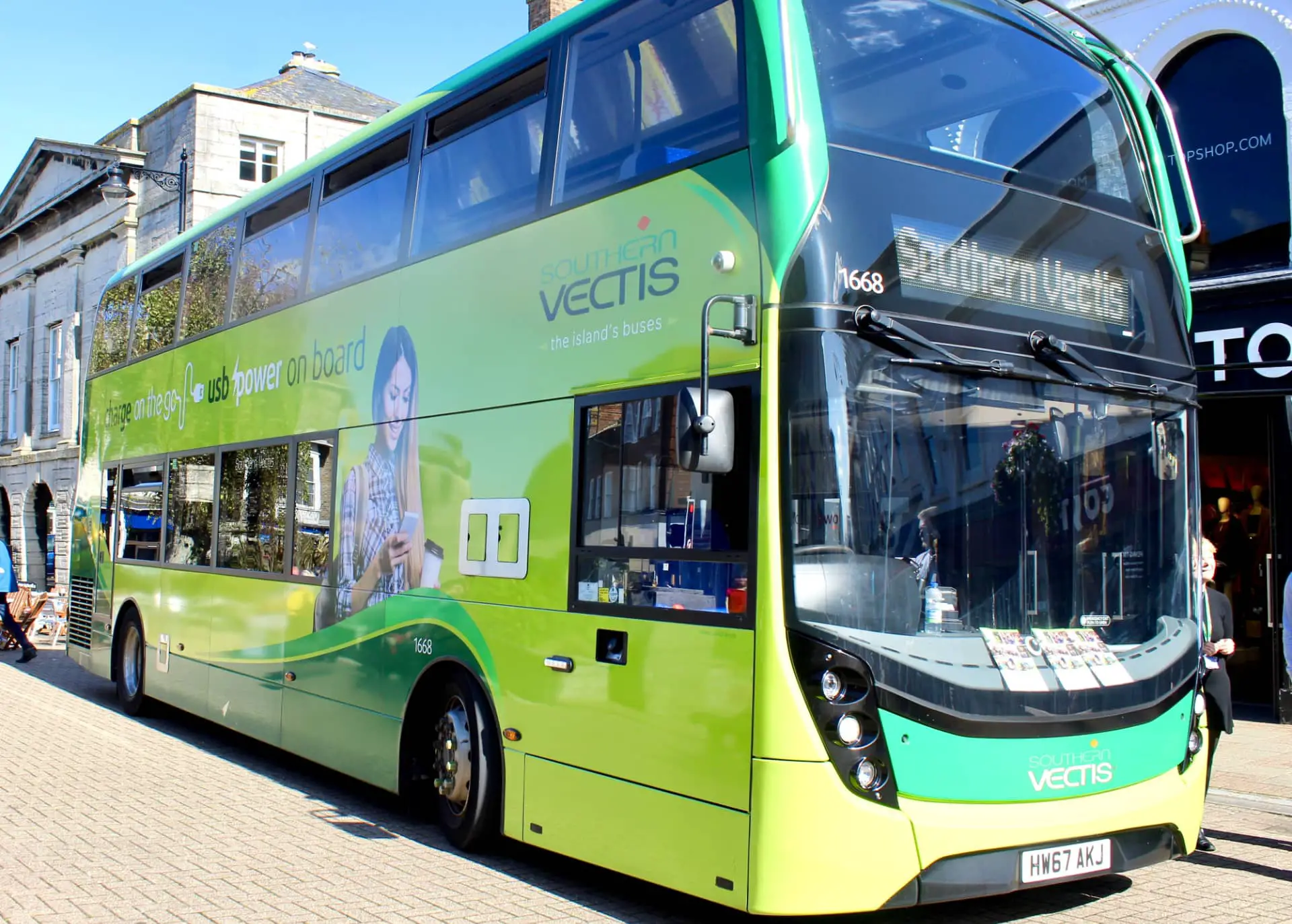Southern Vectis will get more than £4.5 million from the Isle of Wight Council because the bus operator is still affected by the long-term impact of Covid-19, alongside recent economic pressures.
The West Wight’s FYT bus and Ventnor’s Service 31 will also receive financial support.
As reported by News OnTheWight in March, bus passenger numbers are increasing, but still aren’t up to pre-pandemic levels, the authority says.
Payout agreed by Cabinet
Last year, the Isle of Wight council subsidised Southern Vectis by £4.6 million.
Leading Isle of Wight council cabinet members agreed this year’s payout on Thursday night, in line with the Department for Transport’s alternative Covid-19 recovery strategy.
It is hoped the cash will negate any significant detrimental knock-on effects on Isle of Wight bus services.
85 to 90 per cent of pre-pandemic levels
The council says Southern Vectis is currently operating close to levels it did in 2019 and above, in the summer tourist season.
The number of passengers, however, is only back to 85 to 90 per cent of pre-pandemic levels.
Only 80 to 82 per cent of concessionary passengers have returned, although numbers have increased year on year.
Rowland: Continuing to support vital bus routes in rural areas.
Speaking on Thursday, Colin Rowland, the council’s neighbourhoods director, said the money was the authority’s way of continuing to support vital bus routes in rural areas.
The amount of concessionary fares to be reimbursed by the IW council is based on how many buses a company runs.
More than three million concessionary fares
Based on 2019/20 passenger levels, and more than three million people paying a concessionary fare, the Isle of Wight council will pay £4,691,602.09 to Southern Vectis, split into monthly increments, until March 2024.
In the coming year, Mr Rowland said the council will carry out a review and will consider using actual passenger numbers when calculating future subsidies.
This article is from the BBC’s LDRS (Local Democracy Reporter Service) scheme, which News OnTheWight is taking part in. Some alterations and additions may have been made by OnTheWight. Ed





